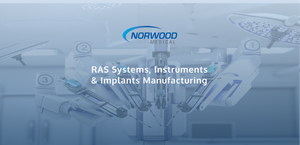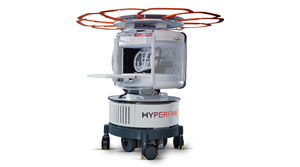StimGuard scores a CE mark for its overactive bladder system and becomes the latest company to have a commercialized product in the neuromodulation space.
May 17, 2018

The Neuromodulation market is rapidly growing and has become host to many medtech companies. StimGuard is the latest firm to make significant moves in the space, as it has received CE mark for a wireless neuromodulation device to treat chronic symptoms of overactive bladder.
The Pompano Beach, Fla.-based company said its StimGuard would be available in Europe in the summer of 2018.
“A wireless system that enables urologists to inject such a clinically proven therapy represents a shift in the field where there has only been one option for over 15 years,” Karl-Dietrich Sievert MD, PhD, professor and co-chairman of urology, University of Rocstock, Germany, and co-founder of StimGuard, said in a release. “The ability of the CE Marked StimGuard SNS System to offer the same level of stimulation at the micro-wireless level will give patients an alternative to a bulky battery or excessive invasive surgeries, but still provide the same control.”
The company said the major advantage of the StimGuard SNS system is the elimination of the implanted battery source (a pacemaker-like device), called an IPG, required by the other SNS device on the market. With the StimGuard technology, only a small device, five percent of the size of the other option, with electrode contacts and an embedded chip is placed within the body through a needle mated with a wire receiver, enabling a potentially lower-cost option. With other systems, the patient undergoes an invasive surgery to have a battery pack surgically implanted under their skin. The battery pack would have to be replaced every three to five years, which is eliminated with the StimGuard SNS System.
Neuromodulation on the rise
Throughout the past few years, Neuromodulation has become very appealing to medical device firms. LivaNova shed its cardiac rhythm management business to Shanghai-based Microport for $190 million so that it could in part focus on neuromodulation, one of the largest markets it serves.
Two weeks after the divestiture of the CRM unit, LivaNova picked up ImThera for $225 million. The deal would go toward building up LivaNova’s neuromodulation offerings. San Diego, CA-based ImThera has developed an implantable device to stimulate multiple tongue muscles via the hypoglossal nerve, which opens the airway while a patient is sleeping.
In December 2017, Boston Scientific received FDA approval for its Vercise deep brain stimulation system. The neuromodulation device enabled physicians to treat the symptoms of Parkinson’s disease.
Abbott Laboratories received a significant boost to its neuromodulation offerings when it acquired St. Jude Medical for $25 billion. The acquisition gave the Abbott Park IL-based company access to the Proclaim Elite recharge-free spinal cord stimulation system and Prodigy chronic pain system.
About the Author(s)
You May Also Like




